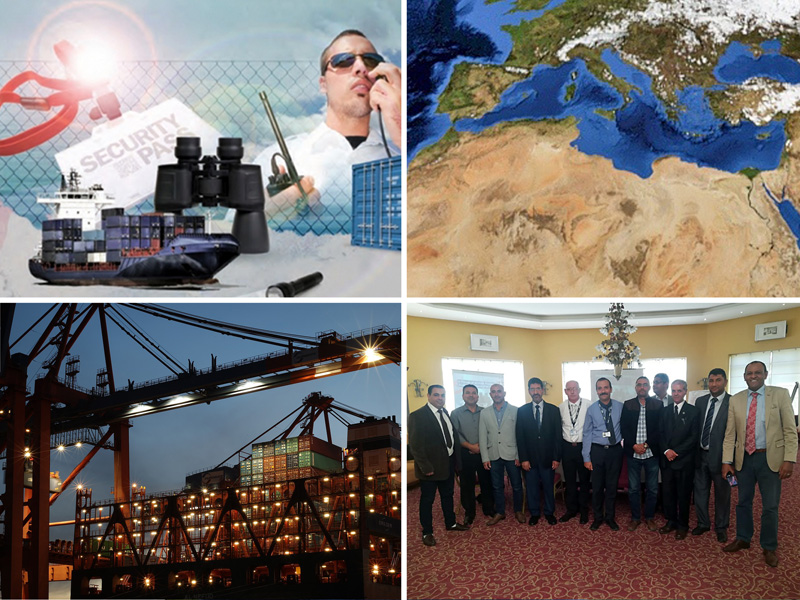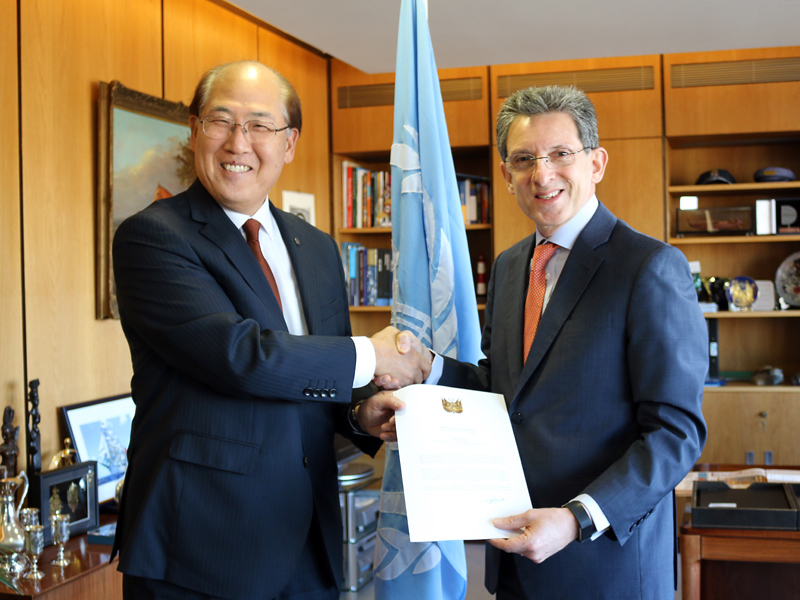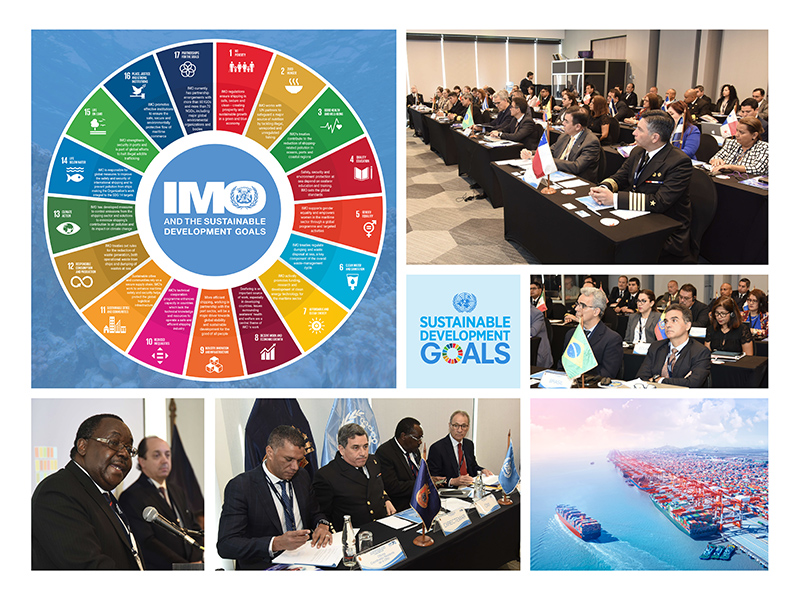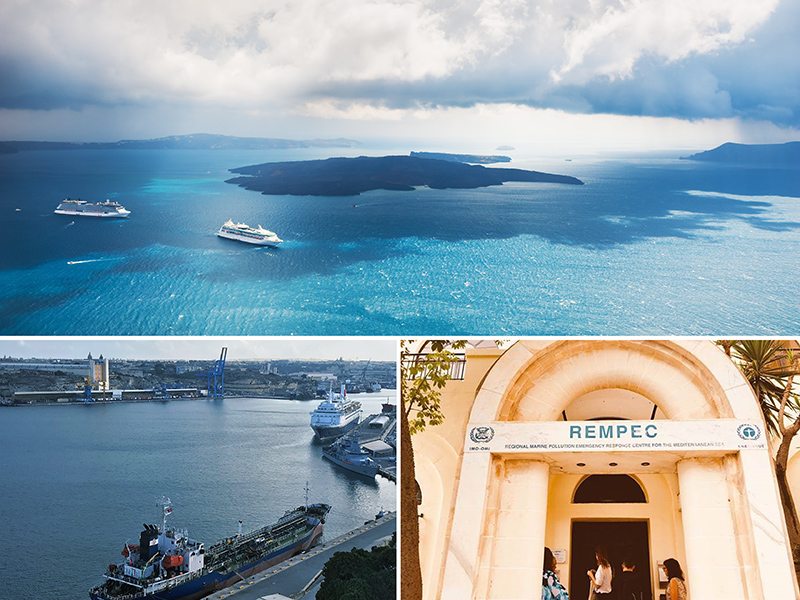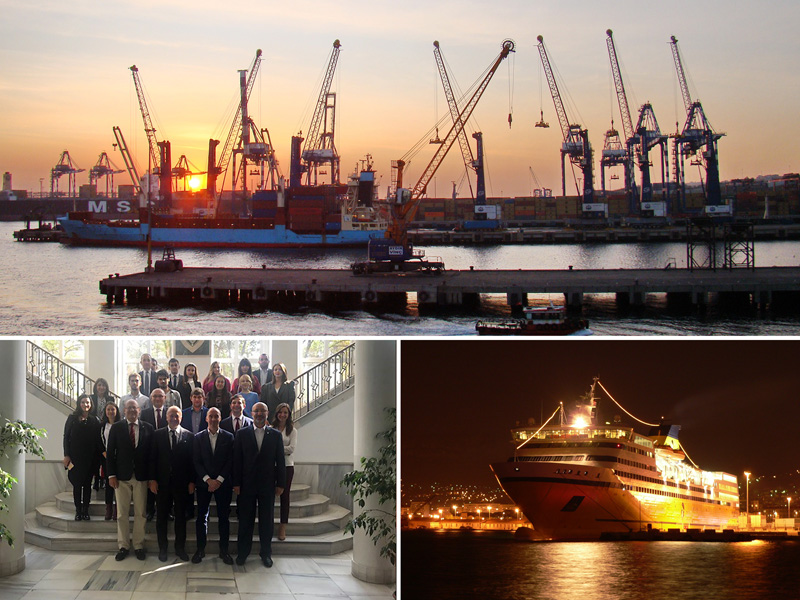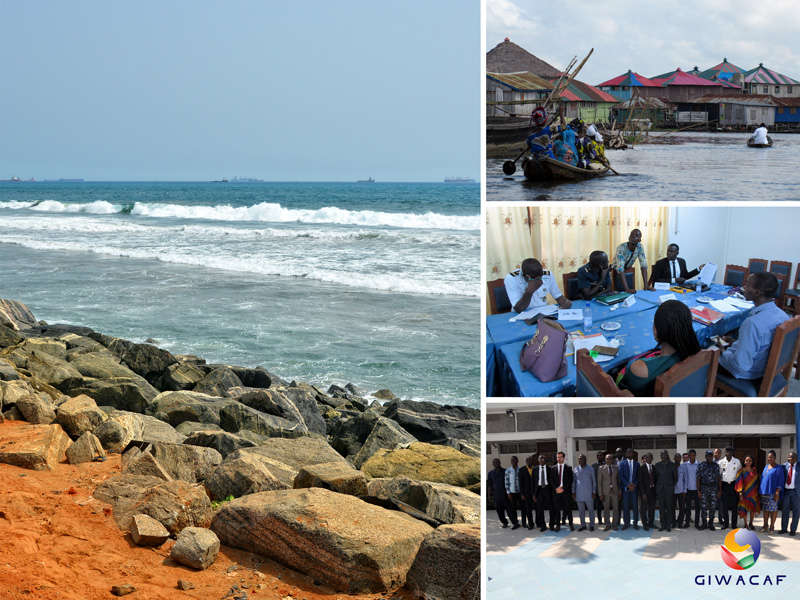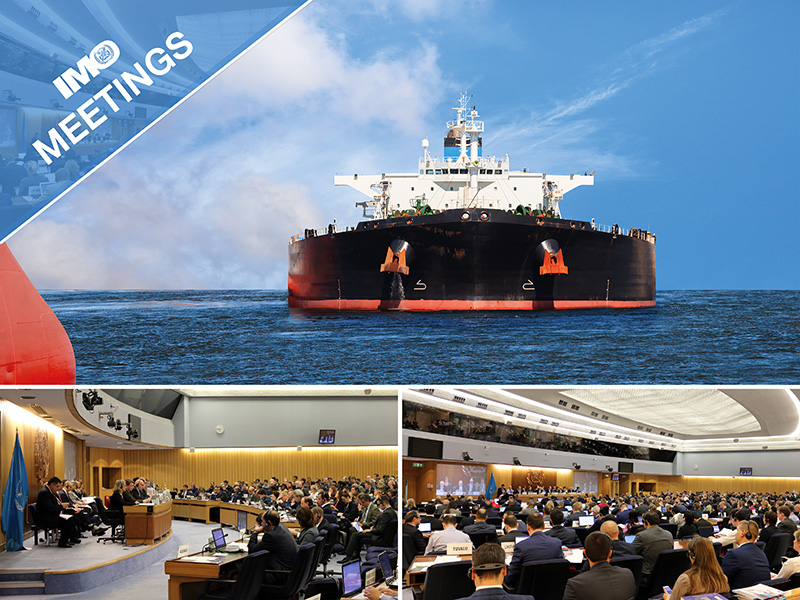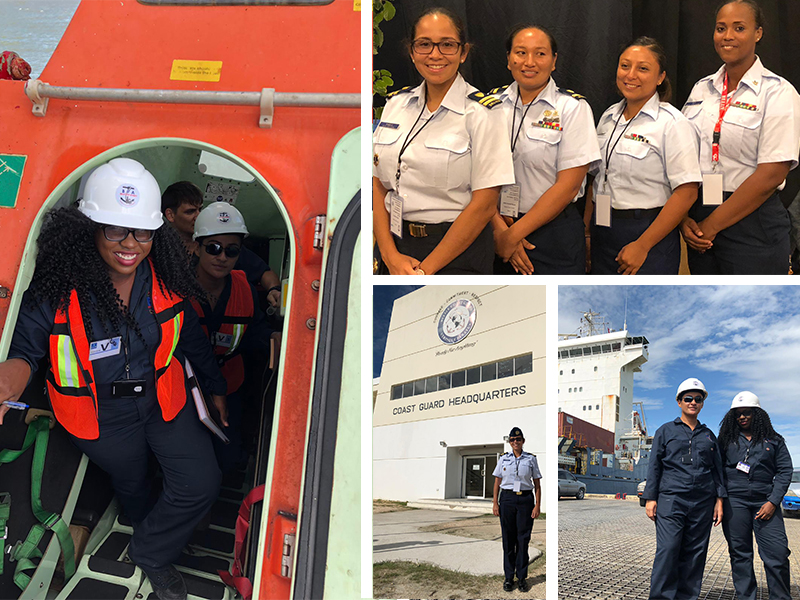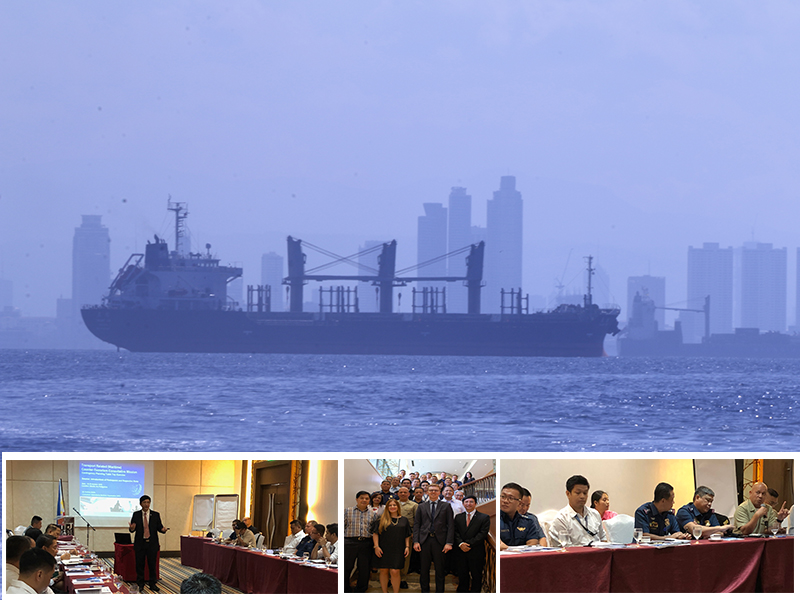Whats New 2018
Training for Libyan port security officers
Libyan port and maritime security officers are receiving
training on IMO’s International Ship and Port Facility Security Code (ISPS Code), which sets out preventive security measures to detect and deter threats to ships and port
facilities. The participants are in charge of port security throughout
the country, and also include members of the national committee in charge of
oversight of compliance in Libya, who will be part of a special session
dedicated to oversight responsibilities. more...
Peru accedes to dumping of wastes at sea treaty, presents credentials
Peru has become the 51st State to accede to the IMO treaty covering dumping of wastes at sea. HE. Mr. Juan Carlos Gamarra Skeels, newly appointed Ambassador of Peru to the United Kingdom and Permanent Representative to IMO, presented his credentials when he met IMO Secretary-General Kitack Lim at IMO Headquarters, London (31 October) to deposit the instrument of accession to the London Protocol. more...
Supporting sustainable development in Latin America
As
part of the United Nations family, IMO is actively
working towards the 2030 Agenda for Sustainable Development and the
associated Sustainable Development Goals (SDGs). This Agenda calls for action by all
countries to eradicate poverty and achieve sustainable development by 2030
world-wide. IMO
is working to support this process and to ensure that the maritime sector is
fully integrated into the United Nations Development Assistance Framework
(UNDAF), which is the main platform for the collaboration of the UN system
at country level. An IMO-led workshop for countries in Latin America is being
held in Viña del Mar, Chile (29–30 October). more...
IMO helps assess further sulphur reductions in the Mediterranean
On 1 January 2020 an IMO requirement will reduce the sulphur
content permitted in ships’ fuel-oil, globally, to just 0.5%. This will bring
important health benefits. But IMO also has a process by which specific areas
can be designated as Sulphur Emission Control Areas, or SECAs. Within SECAs,
the requirement is for even cleaner fuel – just 0.1% sulphur. REMPEC, the IMO-administered marine pollution
emergency response centre in the Mediterranean, has just concluded a study to
evaluate the costs and benefits of implementing a SECA in the
Mediterranean region. more...
Supporting Turkey on IMO liability treaties
A workshop for Turkish government
and industry officials is set to boost the country’s ability to ratify and enforce
IMO’s liability and compensation regime*. The event is taking place at the
University of Ankara (22-26 October) as
part of the master programme at the Ankara University Research Center of the
Sea and Maritime Law. It is focused on the specific requirements for each convention
in order for them to be enacted fully into national law. more...
Strengthening oil spill response in Benin
The GI WACAF project – a collaboration between the International Maritime Organization (IMO) and IPIECA* – helps build capacity for oil spill preparedness and response in West, Central and Southern Africa. This week (22-25 October), Benin is hosting a GI WACAF workshop in order to strengthen its national oil pollution contingency plan. more...
Marine Environment Protection Committee meets
IMO’s Marine Environment Protection Committee (MEPC 73) has begun a busy session (22-26 October). On Monday, the MEPC moved ahead with its work to deliver the IMO initial strategy on the reduction of greenhouse gas emissions from ships, approving a programme of follow-up actions (see here). The Committee will address the implementation of the 0.50% sulphur limit; and marine litter. The MEPC was opened by Secretary-General Kitack Lim and is being chaired by Mr. Hideaki Saito (Japan). Click for photos. more...
Caribbean maritime women chart the course for the next generation
A new mentorship scheme to encourage the next generation of women into the maritime sector has been launched at the annual conference of the Women in Maritime Association, Caribbean (WiMAC), which is being held in Belize City, Belize (16-19 October). This type of scheme is consistent with IMO’s Women in Maritime programme, which supports the participation of women in both shore-based and sea-going posts, in line with the goals outlined under the United Nations Sustainable Development Goal 5: "Achieve gender equality and empower all women and girls". more...
UN agencies delivering on maritime security
Maritime security is a key element of IMO's work and, over many years, the Organization has developed a number of measures to help promote and sustain it. The focus is now on helping countries build their capacity to put these measures into practice. IMO regularly partners with other agencies to do this. As part of a continuing collaboration with the UN Office on Drugs and Crime (UNODC), a national contingency-planning exercise for the government of the Philippines was recently held in Manila (18-19 October). more...
